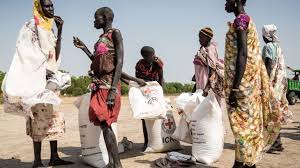The Horn of Africa is experiencing one of its most severe droughts in recent history, with more than 15 million people acutely food insecure in Ethiopia, Kenya and Somalia, the United Nations Office for the Coordination of Humanitarian Affairs (UNOCHA) has said.
“The threat of large-scale loss of life is rising each day and more funding is immediately required to enable humanitarian partners to respond at-scale to this once-in-a-generation crisis,” the UNOCHA said in its latest situation update issued late Tuesday.
“Families are taking desperate measures to survive, with thousands leaving their homes in search of food, water and pasture,” it said.
The risks faced by women and girls, including gender-based violence and death during childbirth, have risen sharply since the drought began.
The latest forecasts by the UNOCHA indicate that the March to May 2022 rainy season is likely to be average to below average. This comes after the October-December 2020, March-May 2021 and October-December 2021 seasons were all marred by below-average rainfall, leaving large swathes of Somalia, southern and south-eastern Ethiopia, and northern and eastern Kenya facing exceptional drought.
“If the March-May (2022) rains fail, this would be the first time in the last 40 years that the region has endured four consecutive below-normal seasons,” the UNOCHA warned.
According to the UNOCHA, between 5.5 million and 6.5 million people in Ethiopia and some 3.5 million people in Kenya are severely food insecure due to the drought.
MG/abj/APA


